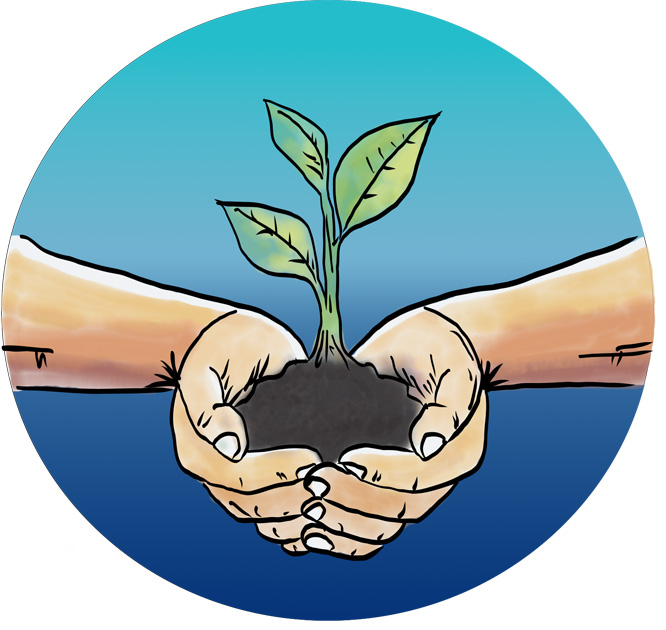It’s clear that today’s consumers care about more than just what they buy; they care about the values behind the brands they support. According to Forbes Magazine, a remarkable 88% of people in the US and UK actually want brands to help them live more eco-friendly and ethical lives! This presents a huge opportunity for businesses. By embracing sustainable marketing, companies can connect with these values-driven customers and build stronger, more meaningful relationships. But, it’s essential to remember that these efforts must be genuine and truly effective to resonate.
What is Sustainable Marketing?
So, what exactly is sustainable marketing? It’s about showing the world how your company cares for the planet and society. It’s about the products you offer, the way you do business, and the values you stand for. And most importantly, it’s about communicating all of this in a way that truly connects with your audience.
Why is Sustainable Marketing Important?
Why is this so crucial? Well, for starters, it’s good for the planet! By adopting greener practices, you’re helping to lessen your environmental footprint and build a more sustainable future. Plus, it builds incredible customer loyalty. People love supporting businesses that share their values; demonstrating your commitment to sustainability builds trust and strengthens customer relationships. It also boosts your brand image! Being seen as a leader in environmental and social responsibility can really set you apart.
How to Implement Sustainable Marketing
So, now that we understand the benefits of sustainable marketing, let’s explore some practical ways to put it into action.
-
Walk the talk: Make sure sustainability is woven into the very fabric of your company’s values, and let that shine through in your marketing. Maine Grains in Skowhegan, Maine, is a fantastic example. They are committed to reviving local grain production, working with Maine farmers to grow and process heritage grains. Their mission is to create a sustainable food system in Maine, and this is reflected in every aspect of their business, from their sourcing to their milling practices.
-
Eco-friendly packaging: Switching to biodegradable or reusable packaging is a fantastic way to show you care. Sea Bags, based in Portland, Maine, creates durable and stylish bags from recycled sails. They focus on repurposing materials and minimizing waste, offering a sustainable product with a minimal environmental footprint. This is a great example of a business finding a creative way to upcycle and create a desirable product.
-
Go digital: Leverage the power of online marketing to reach your audience while minimizing paper waste. Local businesses are increasingly using digital platforms to connect with their communities. Sheepscot General Store in Whitefield, Maine, for example, effectively utilizes its online presence to promote local products, highlight its commitment to sustainability, and engage with customers. Their website and social media channels showcase the diverse offerings from local farmers and artisans, making it easy for consumers to support the local economy.
-
Highlight the good stuff: Showcase the environmental benefits of your products and services, and help your customers understand how their purchases make a difference. Transparency and education are key components of sustainable agriculture. Farms like Pumpkin Vine Family Farm in Somerville, Maine, not only practice sustainable agriculture through regenerative methods and responsible animal husbandry, but they also actively educate the public about the importance of these practices. This commitment to sharing knowledge and fostering understanding is crucial for building a more sustainable food system.
-
Team up! Partner with other organizations that share your passion for sustainability. The Maine Organic Farmers and Gardeners Association (MOFGA) plays a crucial role in fostering collaboration within the sustainable agriculture community in Central Maine. They connect farmers with resources, offer educational programs, and facilitate networking opportunities, strengthening the entire local food system. MOFGA’s Common Ground Country Fair is a prime example of their collaborative efforts, bringing together farmers, artisans, and consumers to celebrate sustainable living.
-
Be real: Transparency is key. Be open and honest about your sustainability journey, the progress you’re making, and the challenges you face. Wanderwood Farm in Nobleboro, Maine, prioritizes open communication about their practices, sharing information about their regenerative agriculture methods, responsible animal care, and commitment to the land. This dedication to open communication fosters a strong connection with their community and allows customers to understand the values behind their products.
-
Get your customers involved: Empower them to join your sustainability efforts and reward them for their participation. Supporting local businesses is a key way for consumers to participate in building a more sustainable community. Thimble Creek Farm, which rents sustainably made farm tables for events, specifically serves the Central Maine area. By choosing Thimble Creek Farm for their events, customers are not only supporting a local business but also making a conscious choice to use repurposed and sustainably sourced materials.
The Risks of Greenwashing
A quick word of caution: beware of “greenwashing.” That’s when companies make misleading or unsubstantiated environmental claims. It can seriously damage your reputation, so always be truthful and back up your claims with solid evidence. Greenwashing can also have legal consequences, further emphasizing the importance of honest communication.
The Future of Sustainable Marketing
Looking ahead, sustainable marketing is only going to become more important. As people become more aware of environmental and social issues, they’ll increasingly choose to support companies that are making a real difference. By embracing sustainable marketing now, you’re not just helping the planet – you’re also setting your business up for long-term success. This is a journey we’re all on, and I hope this overview has provided some helpful insights and inspiration. I’m learning and growing in my own sustainability journey, and I believe that by celebrating businesses that are making a difference, we can encourage even more positive change.
